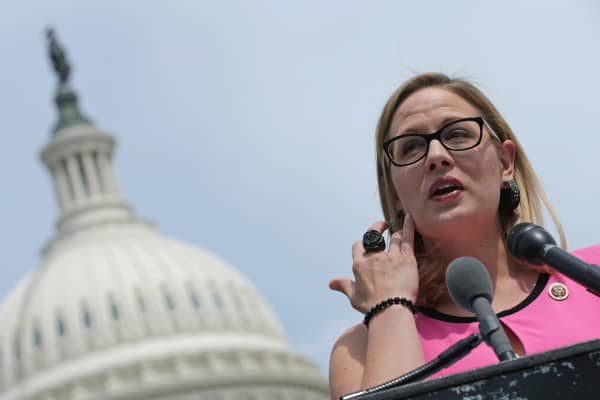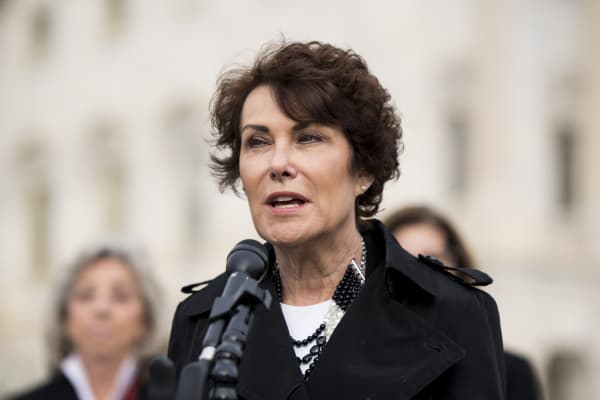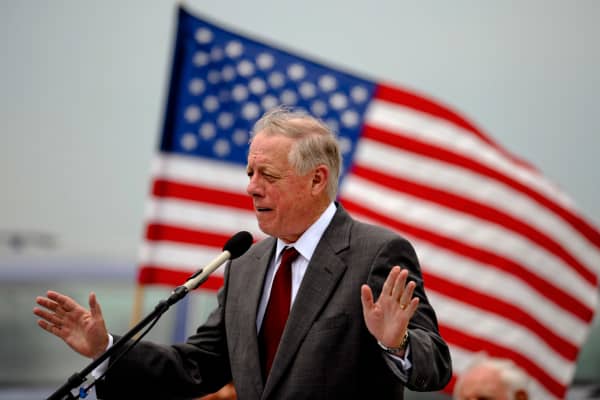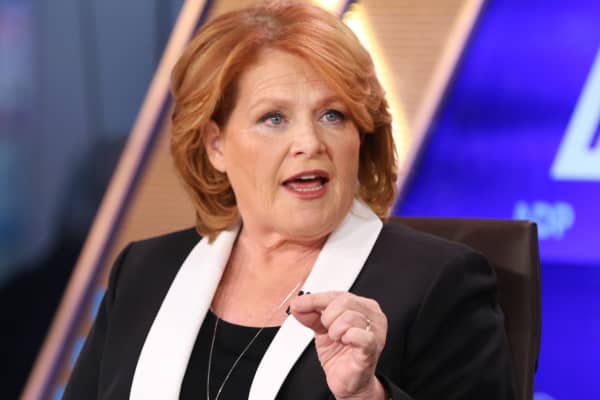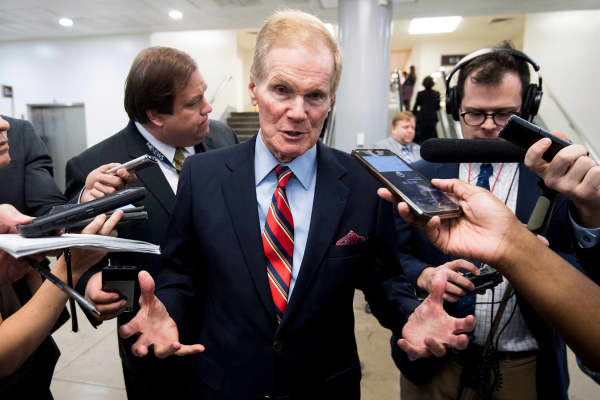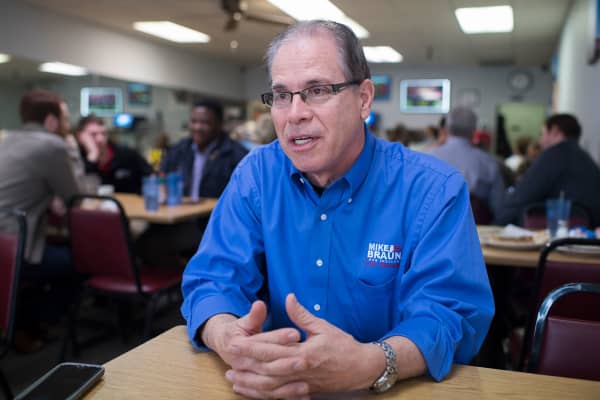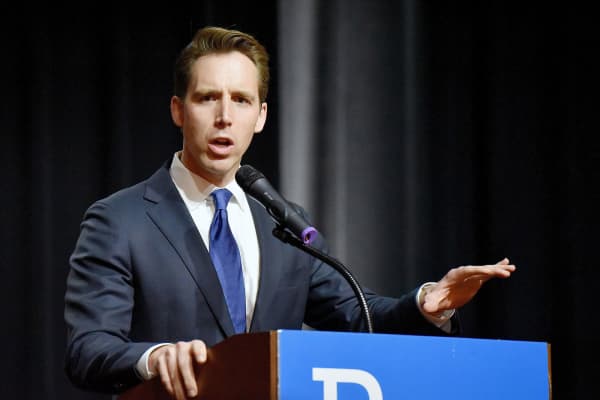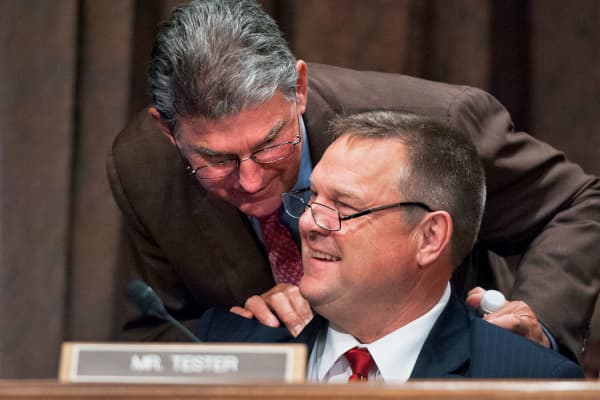If money turns out to be the deciding factor in this fall’s election, Democrats so far have positioned themselves well to take back control of the Senate.
With a little more than three months left in the race, Democrats in eight of nine key battleground states have generated a substantial fundraising advantage, raking in far more cash than their GOP opponents, a CNBC analysis of the latest campaign finance data shows.
To be sure, elections forecasters typically give Republicans a better chance to hold on to their majority in the chamber. Democratic incumbents are defending Senate seats in 10 states Trump won in 2016.
Most of the money fueling the battle for the Senate is coming from large contributions from wealthy individuals and national political action committees. Of the $358 million raised in these nine battlegrounds, less than 14 cents of every dollar came from individual donations of $200 or less.


